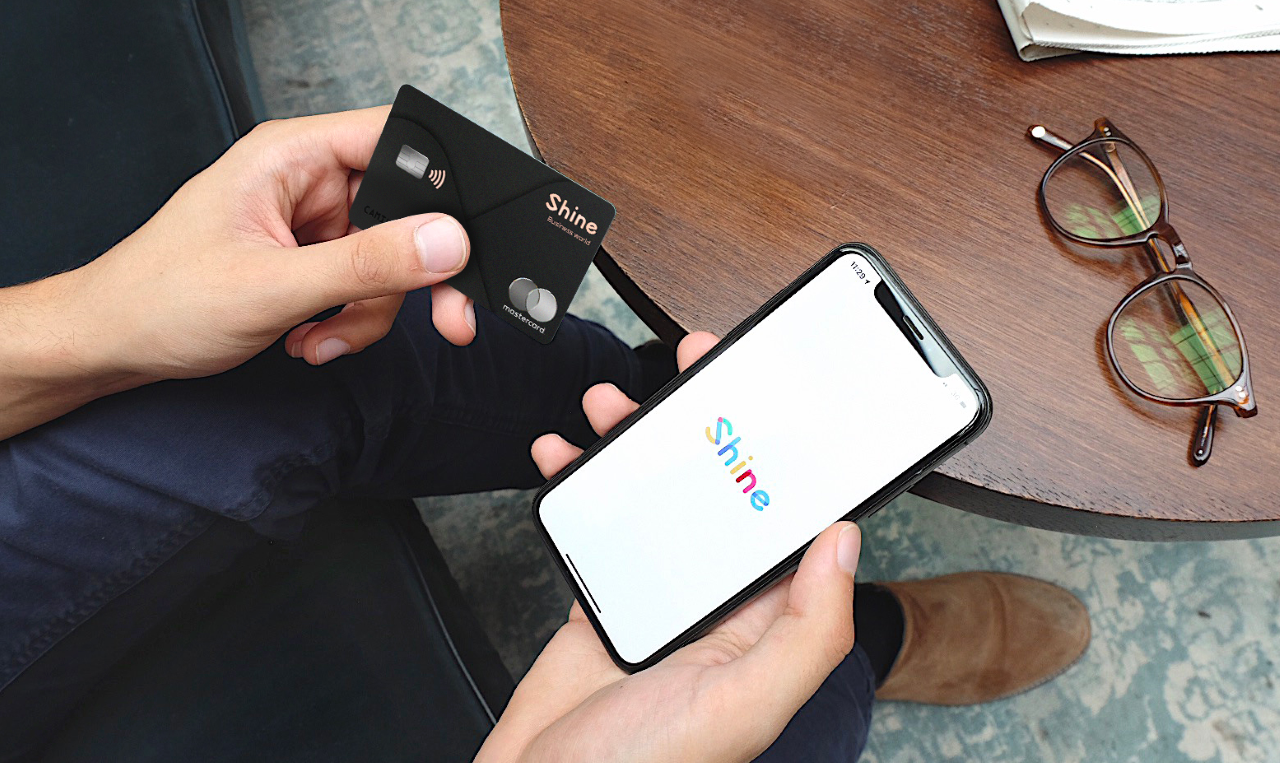
Société Générale is to acquire French start-up digital challenger bank Shine in one of the more interesting deals of the year, reports Douglas Blakey. Shine has carved out a niche serving 70,000 freelancers and entrepreneurs, but can it remain nimble and innovative under new ownership?
Société Générale is buying Shine, the neobank for entrepreneurs in a deal worth a reported €100m ($113m). Now for the interesting bits: Shine will operate independently from Société Générale, with its two co-founders, Nicolas Reboud and Raphaël Simon, remaining in place.
Shine will accept new customers, but SocGen and Shine will cross-promote their respective products and services. That means SocGen might offer Shine to its own business clients, and as Shine customers scale up, Shine may redirect clients to SocGen.
Shine offers an online business account as a well as online tools to support customers with administrative chores. These include invoicing, calculation of charges and accounting. Moreover, Shine happens to be built on top of banking-as-a-service Treezor, itself acquired by Société Générale in 2018.

French fintechs draw entrepreneurs
According to SocGen, Shine is one of the few French fintechs that have proven their ability to attract entrepreneurs, through its position as an innovator and the quality of its offer. SocGen stresses that the tie-up’s aim is to develop broad synergies including services such as credit, insurance and payments.
How well do you really know your competitors?
Access the most comprehensive Company Profiles on the market, powered by GlobalData. Save hours of research. Gain competitive edge.

Thank you!
Your download email will arrive shortly
Not ready to buy yet? Download a free sample
We are confident about the unique quality of our Company Profiles. However, we want you to make the most beneficial decision for your business, so we offer a free sample that you can download by submitting the below form
By GlobalDataThe challenge will be twofold: can Shine retain its culture for innovation within a large multinational such as SocGen?
And can Shine base future growth on its current strong convictions and values, such as social engagement and the development of its staff? For example, Shine was recently B Corp certification, the international label recognising its commitment in six areas: the environment, society, employees, governance, community and clients.
Fintech deals
Société Générale was the first French bank to acquire a fintech, back in 2015 with the deal for Fideceo. Since then there have been deals for Lumo and Treezor.
Marie-Christine Ducholet, director of Société Générale retail banking in France, comments: “Through the acquisition of Shine, we will be able to offer entrepreneurs the widest offer in this growing, high-value market. Shine’s model appealed to us because it reinforces our relational promise to offer clients the best of mix of people and digital technology.
There are many synergies with our various businesses allowing us to take our open banking strategy to the next level.”
Shine co-founder and CEO Nicolas Reboud adds: “We created Shine to make the lives of entrepreneurs easier and allow them to concentrate on their business.
“We are pleased and proud to join Société Générale, further proof of the solidity of our model, based on digital technology, human support and responsible development. This acquisition will provide entrepreneurs with a solution that is still simple but considerably enriched. We cannot wait to speed up the work that has been going on for two years.”
In a masterly understatement, SocGen stated the obvious that the transaction will not have a significant impact on its CET1 ratio.
Transact cost is petty cash for SocGen
For SocGen, the cost of the transaction is the equivalent of loose change found down the side of the sofa. Now it has to prove that it can execute the deal.
It does not need to look very far for an example of how not to buy a digital challenger bank. Back in 2016, French lender BPCE agreed to acquire German digital bank Fidor.
One of the first digital neobanks, Fidor was founded in 2009 and quickly developed a quirky reputation for its innovative use of social media, crowdfunding and P2P lending.
The deal made sense, on paper. Fidor had plans to expand internationally and BPCE could back Fidor’s growth plans. Moreover, Fidor CEO Matthias Kröner agreed to stay in place post-acquisition.
Group BPCE’s chair made all the right noises. He talked of the Fidor acquisition representing a key step in the acceleration of the digital transformation of the bank.
And he claimed that it demonstrated its commitment to innovation, and would enable it show how it could develop a customer-centric, digital banking model.
A botched deal
It was to prove one of the more embarrassingly badly executed deals. BPCE paid around €140m for Fidor. In 2017, it injected a reported €89m into Fidor, and the following year, local press reported a culture clash between the incumbent and the neobank.
In April 2019 Matthias Kröner left the bank and the bad news continued. The Fidor launch in the UK was something of a damp squib and by July 2019 Fidor threw in the towel in the UK.
It blamed Brexit uncertainty, a somewhat unconvincing excuse given that Brexit was not exactly a secret, the referendum having taken place back in 2016.
It is a safe bet that SocGen will not repeat some of the mistakes associated with the BPCE-Fidor saga.








